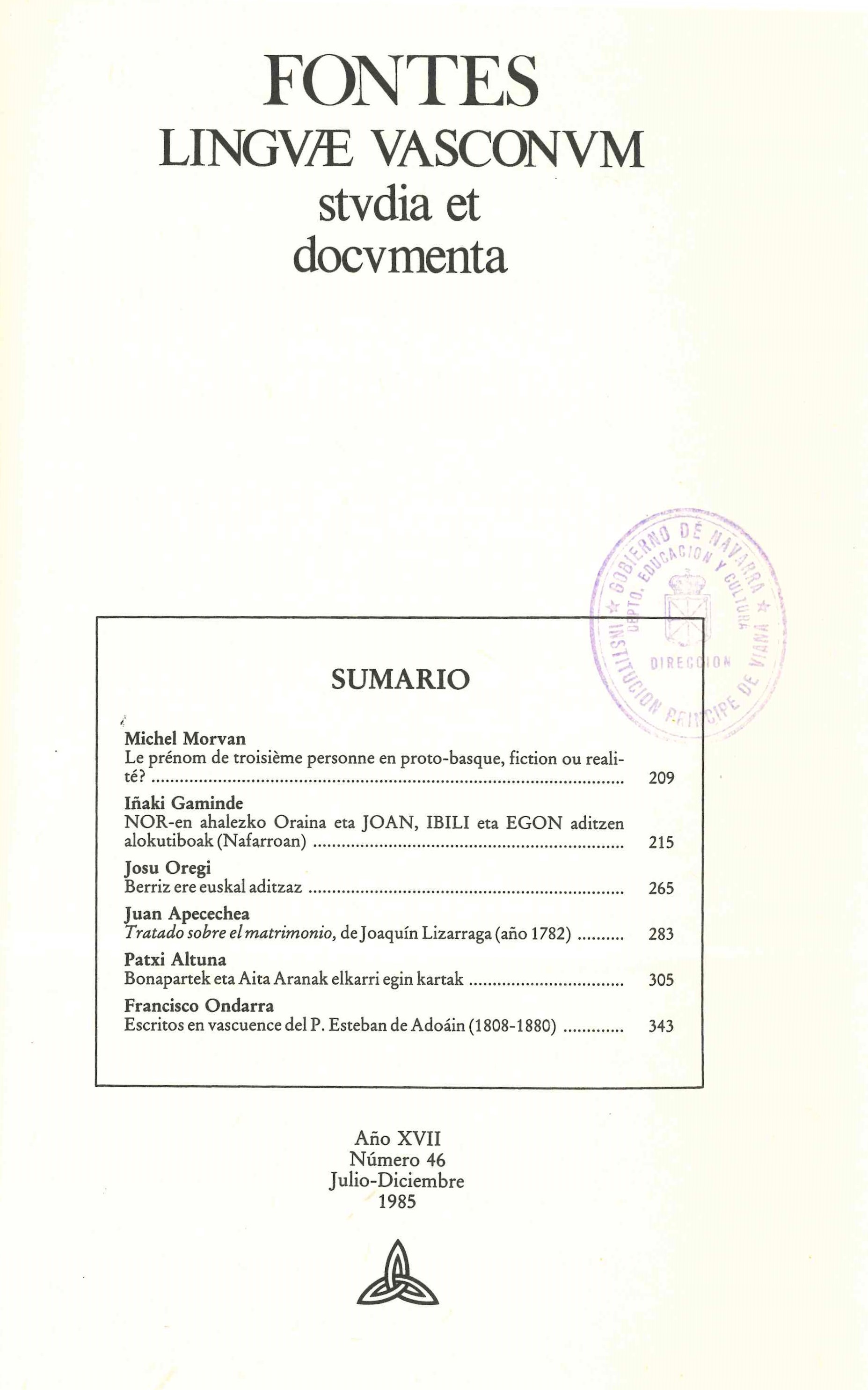Berriz ere euskal aditzaz
Resumen
En el presente trabajo, y como complemento de las consideraciones expuestas en otros anteriores, se pretende acercarse a la comprensión de la actual estructura del verbo vasco mediante un examen interno del mismo.
En ese sentido, y corrigiendo alguna de las conclusiones expuestas anteriormente, se postula la existencia, en un primer estadio de la conjugación vasca, de verbos con un solo actante cuyo caso declinativo (absoluto, dativo, ergativo y aun genitivo) estaría determinado por la naturaleza de la acción expresada por el verbo.
Este punto de vista (el partir de la existencia de una primitiva conjugación con un solo actante) parece más lógico que la admisión de que las actuales flexiones verbales hubieran surgido como formas complejas en que coexistían ya varios actantes.
Según la tesis que ahora se propugna, las actuales flexiones verbales se hubieran formado mediante la «captación» por las formas primitivas de segundos o terceros actantes tras haberse perdido, tanto por la natural evolución de las ideas como por influencias externas, la conciencia de la estructura primitiva, en la que la naturaleza de la acción expresada por el verbo llevaba implícito el modo de relación del «sujeto» con esa acción y, en consecuencia, el caso declinativo que le correspondía.
Una frase como
«aitari hasarretu zaio = se le ha enfadado al padre»
( = el padre se ha enfadado)
puede servir de ejemplo de otras en que acciones como
hasarretu = enfadarse
beldurtu = tener miedo
erotu = enloquecer
parecen requerir el uso del dativo para el sujeto. Se aducen también casos de verbos que, si bien actualmente suelen llevar el sujeto declinado según el ergativo, han requerido y algunos requieren aún el dativo.
Se desbordan pues las estructuras «transitivo/intransitivo» y «sujeto/predicado», procedentes de las lenguas clásicas y de la filosofía a que las mismas responden, que no permiten una explicación satisfactoria de algunas formas verbales vascas. Con ello se sugiere, para el ergativo vasco, una explicación que pudiera ser extensible a otros ámbitos lingüísticos.
Estadísticas
Derechos de autor 1985 Josu Oregi

Esta obra está bajo licencia internacional Creative Commons Reconocimiento-NoComercial 4.0.







